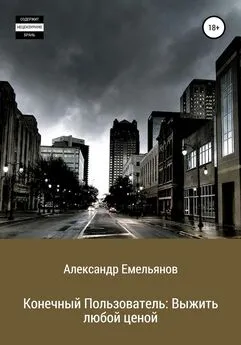Пользователь - o 3b3e7475144cf77c
- Название:o 3b3e7475144cf77c
- Автор:
- Жанр:
- Издательство:неизвестно
- Год:неизвестен
- ISBN:нет данных
- Рейтинг:
- Избранное:Добавить в избранное
-
Отзывы:
-
Ваша оценка:
Пользователь - o 3b3e7475144cf77c краткое содержание
o 3b3e7475144cf77c - читать онлайн бесплатно полную версию (весь текст целиком)
Интервал:
Закладка:
little child to its father. After hearing this concert Lanny had to face the fact that his love for
Kurt and Heinrich had come to an end. He found it hard to be polite to his old friends; and he
decided that being a spy, or secret agent, or whatever you chose to call it, was first and foremost
a damnable bore. The greatest of all privileges in this life is saying what you think; and your
friends have to be people who can at least give decent consideration to your ideas. Lanny was
glad when he got Kurt and Heinrich on their separate trains for home. He thanked them for
what they had done, assured them that it had been worth while, and thought: "I am going to
get Freddi out of this hell, andthen get myself out andstay out."
X
For a week Lanny had been living in close proximity to that mass of human misery known as
Dachau; he had pretended to be indifferent to it, and had spoken of it only when he and Irma
were alone in their car. Dachau is a small market-town nine miles northwest of the city, and a
well-paved highway leads to it. Inevitably their thoughts had turned there, and the car had
taken them at the first opportunity. They didn't, like most tourists, inspect the castle on the
height; they looked for the concentration camp, which wasn't hard to find, as it occupied a
square mile of ground. It had been a World War barracks and training camp, disused since the
peace. A concrete wall seven feet high ran around it, having on top a tangle of barbed wire, no
doubt electrically charged. Lanny thought about somebody trying to climb that wall; it seemed
less possible when he came at night, and saw a blaze of white searchlights mounted in towers,
moving continually along the walls.
The report, published in the newspapers, that the Führer had seen the Sister of Mercy,
filled thousands of Bavarians with a desire to see it, and accordingly it was decided to
continue the exhibition another week. But Lanny was tired of telling people about it, and tired
of what they said; in fact, he was tired of what everybody said in Nazi Germany. If they said it
because they wanted to, he hated them; if they said it because they had to, he was sorry for
them; but in neither case could he be interested.
Deciding to take the bull by the horns, he picked out a sunshiny morning when the inmates of
Dachau might be outdoors—those who were allowed out. He put in his pocket a newspaper
clipping about the Führer having viewed and approved the Detaze painting; also a few of the
interviews with himself and Irma, containing his portrait, and mention of his having been a
guest of Göring. These ought to be equivalent to a ticket of admission to any place in Naziland.
Leaving Irma to do some shopping, he drove out the Dachau road, and instead of parking his
car like a humble nobody, drove to the main gates and announced his desire to see the
Kommandant.
They looked at his car, they looked at his clothes and his Aryan face, and at the engraved card
which he gave them. "Mr. Lanning Prescott Budd" might be somebody so important that he
didn't bother to put his titles and honors on his card, as was the German custom. They let him
through the steel gates, and two Stormtroopers stood guard while a third took his card to the
office. In front of him was a drill ground, and at one side a clatter of hammers; they were putting
up new buildings, doubtless with the labor of prisoners. Stormtroopers were everywhere, all
with their rubber truncheons and automatics; there were now half a million of these fighting men
for whom jobs had to be provided.
XI
The Kommandant consented to see Herr Budd, and he was escorted to the private office of a
tough young Süddeutscher with a scarred face and a round head with black hair close cropped.
Having met Göring, Lanny thought he had no more to learn about toughness. He sat down and
came straight to the point:
"Herr Kommandant, I am an American sympathizer who happens to be in Munich because I
am interested in an art exhibition. You may have read about it, and possibly about me. I had
the honor of spending a morning with the Führer at the Braune Haus a few days ago. I am a
friend of Minister-Präsident General Göring, and had the pleasure of accompanying him on a
shooting trip last month. I live in France and visit frequently in England and America, where I
hear a great deal of propaganda against your Regierung—y ou no doubt know of the charges of
cruelty and torturing which are being widely published. I thought it might be a good thing if I
could say: 'I have visited one of the large concentration camps and seen conditions with my own
eyes.' I appreciate that this is a request you would hardly grant to a stranger; but it happens that
I have some clippings from Munich newspapers which will show you who I am—and
incidentally they contain pictures of myself, so that you can see I'm not anybody else."
The smiling visitor handed over the clippings; the tough Nazi studied them, and his toughness
evaporated like early morning frost in sunshine. This elegant rich foreigner had actually
enjoyed the highest privilege which any good Stormtrooper could imagine—of walking into the
Führer's private study and discussing art with him! "Certainly, Herr Budd; we are always
pleased to show our camp to properly accredited persons. We have taken several foreign
journalists through in the past month or two." The Kommandant arose, prepared to do the
honors himself—perhaps he could find the secret of how to make friends with the Führer!
So Lanny strolled about and saw what was inside those concrete walls with heavily electrified
barbed wire. The officer explained the routine of the camp, and led his visitor over to the
corner where the barracks were situated, fenced off from the rest of the grounds with barbed-
wire entanglements. They were dismal, unpainted, and half-rotted buildings which had been
erected of flimsy materials in wartime and had been neglected ever since. There were numerous
cracks in the board walls and some of the windows had missing glass. There were thirteen one-
story buildings, each with five connecting rooms, and in each room were fifty or more berths,
arranged in three tiers like shelves. The floors were of concrete, and the mattresses were straw
sacks. There was one washstand in each room.
Many of the inmates were outside the camp, working on the roads under heavy guard.
Others were in the workshops, or building the new barracks, or in the offices. The old and the
sick were getting the advantage of the sunshine, the only gift of nature which was still free to
them. They sat leaning against the sides of the buildings, or strolling slowly. Apparently they
were forbidden to converse; at any rate they weren't doing it. They looked dully at Lanny, and
he was ashamed to meet their eyes. Fortunately he had no acquaintances among the Reds and
Pinks of Bavaria, so he gave no soul-wounds.
A drab and distressing spectacle the prisoners presented. They had close-cropped heads.
They wore the clothes in which they had been arrested; but that had been months ago, in many
cases nearly a year, and doubtless they were sleeping in their clothes on these near-winter nights.
The intellectuals of Bavaria had evidently not been fond of outdoor sports; some were lean and
stoop-shouldered, others were paunched and flabby. Many had white hair, and might have
been the grandfathers of their guards, but that earned them no consideration. Ill health and
depression were written all over them. They did not know what they were here for, or how long
they would have to stay—they who had been free men, free thinkers, the best of the land's
intellectuals. They had dreamed of a happier and more ordered world, and this was the
punishment which fitted their crime. "We are not running a health resort," remarked the
Kommandant.
Lanny kept walking, as long as there was anything to be seen: sixty-five bunk-rooms, several
mess-halls, a dozen workshops, and various outdoor constructions. Everywhere he scanned the
faces, looking for that of his brother-in-law's brother or that of Trudi Schultz's husband. He
saw neither; and after he had covered all the ground he could find out about, he ventured the
question: "Don't you have any Jews?"
"Oh, yes," replied the host, "about forty; but we keep them apart, out of consideration for the
others."
"They work, I suppose?"
"They work good and hard, you may be sure."
"Could I see them?"
"That, I am sorry to say, is contrary to the regulations."
The man volunteered no more; and Lanny, having asked as many questions as he dared, let
himself be led back to his car. "I thank you, Herr Kommandant," he said. "I will be able to tell
newspaper reporters that I didn't see any bruised or bloody inmates, or any wire whips or
rubber hose for beatings."
"You might have looked still farther and not seen any," replied the tough Nazi. The remark
was open to more than one interpretation, and Lanny thought: "Maybe he is like me, and
prefers not to lie if he can help it!"
XII
The amateur investigator drove back to the city, wondering how Freddi was standing it. Freddi
himself had wondered, did he have the needed courage, could he find in himself the spiritual
resources?
Lanny, being of an imaginative temperament, asked the same questions of himself; he lived in
those dingy and squalid sheds and felt on his back the lash of those whips which he had not
seen.
Then his busy mind began inventing a little story. He went to see the tough Nazi
Kommandant, and invited him to see the show, and after that to take a ride. When they were
well out in the country Lanny addressed him as follows:
"Herr Kommandant, one of the Jews whom you are providing with plenty of hard work
happens to be a sort of relative of mine. He is a harmless young fellow, and if I should take him
to my home in France he would be content to play the clarinet for the rest of his life and
never do any harm to your glorious movement. It happens that I have just sold some
paintings and have cash in a Munich bank. Suppose I were to pay you, say twenty-five thousand
marks, in any form and by any method you direct, and you in turn would find some way to let
me pick up that prisoner in my car and whisk him up into the mountains and across the
Austrian border-would that appeal to you as a good night's work?"
Lanny's fancy created several denouements for that story. He knew that the Nazi machine
was pretty well riddled with graft; Johannes Robin had told many tales of pure Aryan business
men who were getting what they wanted by such methods, old as the first despotism. On the
other hand, this particular toughie might be a sincere fanatic—it was impossible to tell them
apart. Lanny was sure that if Hugo Behr had been in charge of the camp, he would have taken
the money; on the other hand, Heinrich Jung would probably have reported him to the grim
Gestapo.
And what would happen then? They couldn't very well do worse than escort him to the
frontier, as Generalissimo Balbo's men had done in Rome nearly ten years ago. But here was the
thing to give Lanny pause: if the Kommandant was a really virtuous Nazi, he might go back to
Читать дальшеИнтервал:
Закладка:




